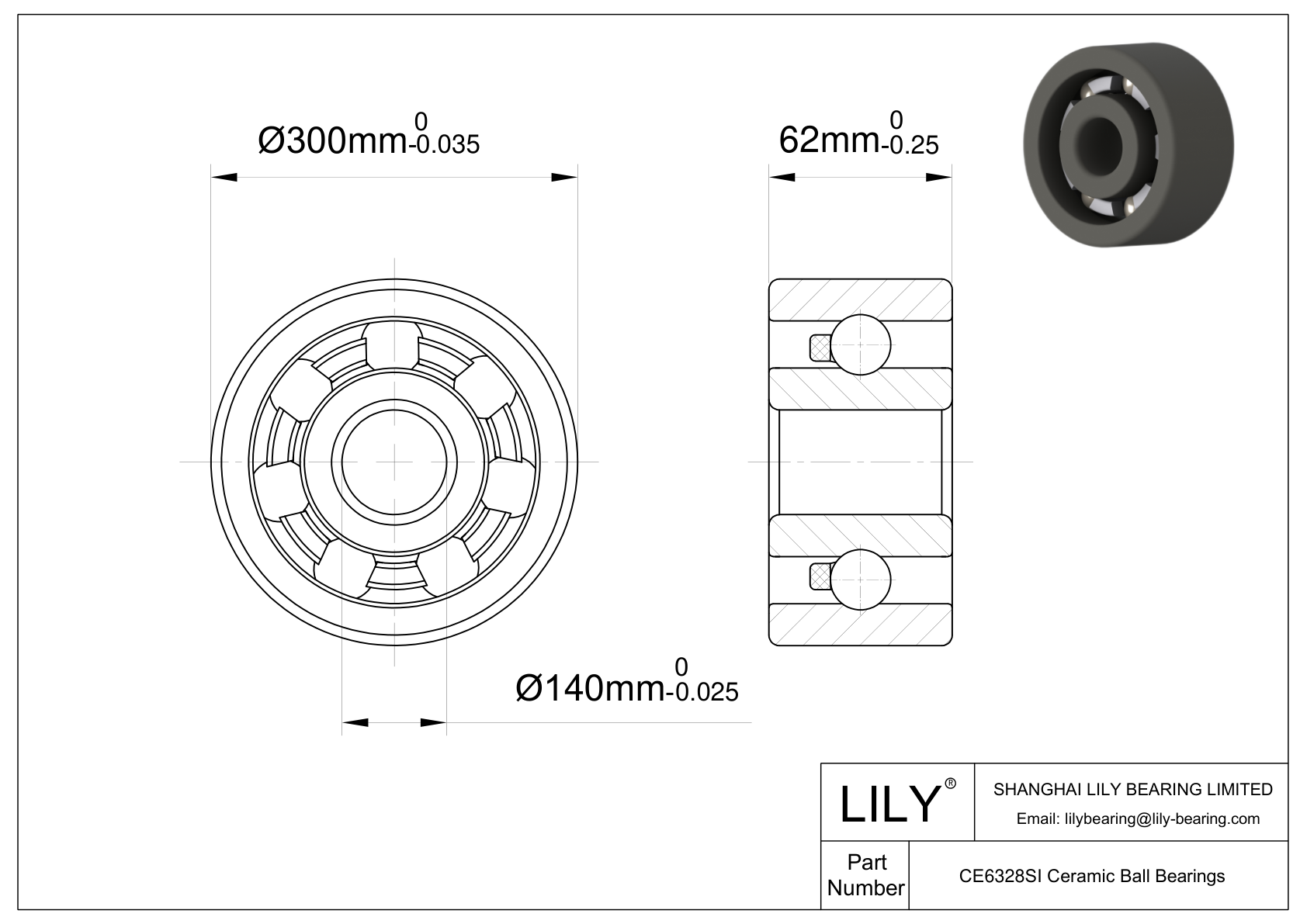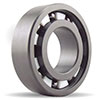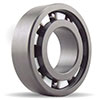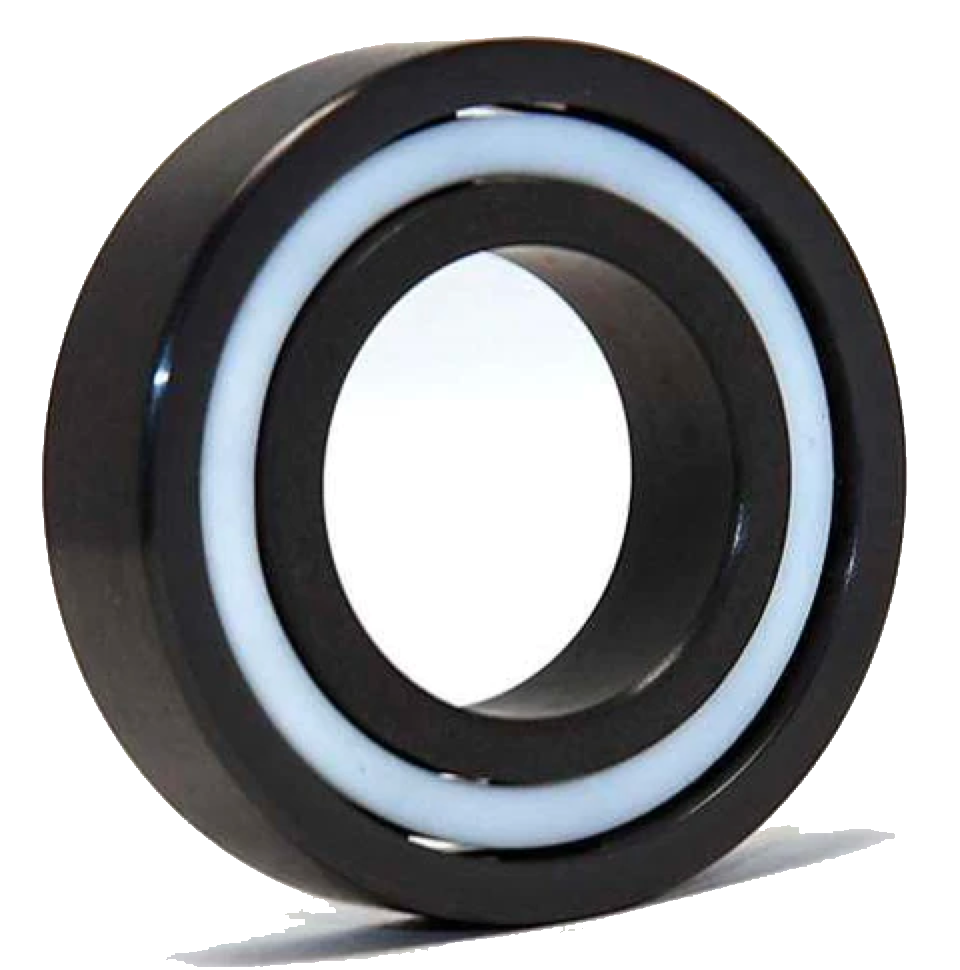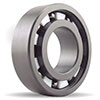Cancel
CESI 6328
| Part Number | CESI 6328 |
| System of Measurement | Metric |
| Radius Of Shaft Or Housing Fillet | 3 mm |
| Fatigue Load Limit | 7.1 kN |
| Reference Speed | 4800 r/min |
| Minimum Load Factor | 0.03 |
| Calculation Factor | 13.6 |
| Weight | 7440.00 g |
| Bearing Type | Ball |
| For Load Direction | Radial |
| Seal Type | Open |
| Bore Dia | 140 mm |
| Outer Dia | 300 mm |
| Width | 62 mm |
| Ring Material | Silicon Nitride |
| Balls Material | Si3n4 |
| Cage Material | PEEK |
| Dynamic Radial Load | 14119 lbf |
| Static Radial Load | 13781 lbf |
| Max Speed (X1000 rpm) | 2.4 |
| Lubrication | Without |
| Temperature Range | -176 to 1472 °F |
| Shoulder Diameter | 248.7 mm |
| Chamfer Dimension | 4 mm |
| Diameter Of Shaft Abutment | 157 mm |
| Diameter Of Housing Abutment | 283 mm |
Design Features of CESI 6328 Bearing
CESI 6328 Bearing is a precision bearing designed with balls made from silicon nitride (Si3N4), a type of advanced ceramic material. CESI 6328 bore dia is 140 mm. Its out dia is 300 mm. CESI 6328 width is 62 mm. This bearing offers superior performance in terms of resistance to heat, corrosion, and wear, making it ideal for specific applications where these properties are crucial.
What Benefits Can CESI 6328 Bearing Provide?
- High-Temperature Resistance: Silicon nitride's ability to withstand extreme temperatures ensures this bearing maintain its performance even in heat-intensive applications.
- Corrosion and Chemical Resistance: CESI 6328 Bearing remains durable in environments exposed to corrosive chemicals.
- Low Friction: Reduced friction attributes to minimal wear, less heat generation, and an extended operational lifespan of the bearing.
- Non-Magnetic: Being ceramic, silicon nitride is inherently non-magnetic, making CESI 6328 Bearing ideal for applications where magnetic interference is a concern.
- Electrical Insulation: Silicon nitride is non-conductive, making it ideal for applications requiring electrical insulation.
What Can CESI 6328 Bearing Be Used for?
CESI 6328 Bearing excels in unique applications due to its specific properties:
- Precision Machine Tools: Especially in high-speed spindle applications where precision and reduced friction are paramount.
- Electric Motors: Used in settings where high efficiency and performance are required. The non-conductive nature ensures minimal electrical interference.
- Aerospace Equipment: For instruments and systems sensitive to weight and where resistance to extreme conditions is essential, like satellite gyroscopes and guidance systems.
- Medical Devices: In high-performance equipment like MRI machines, surgical instruments, and dental drills, where precision, hygiene, and reduced noise are crucial.
- High-Performance Vehicles: In race cars or motorcycles, for wheel and engine bearings, to handle high speeds with reduced heat production.
Recommended Products



